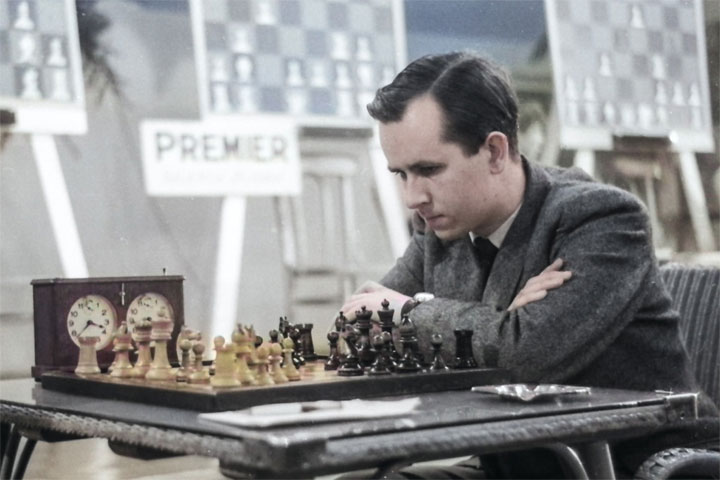Barden’s writing was lively and accessible, his judgment impeccable (Spassky would go on to become world champion). The 1955 column was the start of “a journey that, 70 years, 15 prime ministers, and nearly 4,000 articles later, is still going strong,” writes The Guardian.
“In all that time he has never missed a week – rain or shine, in sickness and in health. And now, officially, he is a record-breaker. Barden recently eclipsed Jim Walsh of the Irish Times, who started his column in July 1955 and finally retired in May this year, to set a Guinness World Record for the longest-running continuous chess column.
Barden, who recently turned 96, is also the longest-serving daily newspaper columnist for his 63-year stint with the Evening Standard, which ended in 2020. Both records will surely never be broken. Yet they are only a small part of an astonishing career.”
Barden, who recently turned 96, has played against three world champions, even beating Bobby Fischer in a blitz game (which Fischer won 12.5:1.5). In 1961 he missed a difficult move to secure a draw against the world champion Botvinnik.
The player had to accommodate his work as a columnist, which ran him into difficulties. He describes one situation:
“The worst experience was in 1957, when I had a winning position against [Jonathan] Penrose, and would have been half a point clear of the field before the final round had I won. We adjourned after a time scramble with me a pawn up. I had to play over all the other leading games before I could write my Guardian report and phone it to copytakers. Then I had less than an hour to eat, and analyse the adjourned position before the resumption. The position was winning but difficult, and I was stressed out, played weakly and lost.”
In his article on Leonard Barden chess historian Edward Winter includes a historical picture of Leonard Barden and Jonathan Penrose from the Hulton Archive, with permission obtained by Olimpiu G. Urcan (Singapore):

Leonard has been a decades-long dear friend, and I am determined to do a yearly report on his activities – hopefully reaching one that reports on the centenarian.
Smyslov cultivated a clear positional style and even in sharp tactical positions often relied more on his intuition than on concrete calculation of variations. Let our authors introduce you into the world of Vasily Smyslov.
